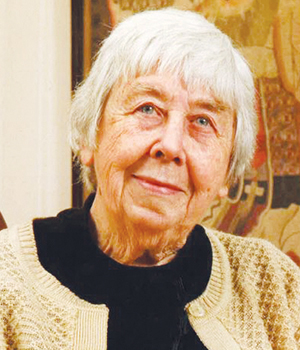Daphne was born in Sydney in 1925. She began her career in education and worked in teaching and research positions before moving into psychology. 
She joined the University of Newcastle as a lecturer in 1970 and stayed there till her retirement in 1990. Daphne was a driving force in the School of Psychology, transforming the teaching and research programs through her collaborations across universities, including internationally. She was particularly passionate about cross-cultural psychology but published broadly including in the areas of developmental and social psychology, and professional practice.
Daphne was actively involved with the APS and was elected as APS President for 1985–86; the second woman to hold that position.
Alongside her husband, Professor John Keats, and in collaboration with colleagues across a number of Asian countries, Daphne led the development of research and study in the field of cross-cultural psychology. As a result of her work, the University of Newcastle and Sichuan University founded The China-Australia Centre for Cross-Cultural Studies in Chengdu, which commemorated its 10-year anniversary last year.
Following her retirement from the university, Daphne continued to supervise students and was a great mentor to her colleagues. In 2000 Daphne and John generously established a philanthropic fund, the John and Daphne Keats Endowment Research Fund, which continues to support cross-cultural research in the School of Psychology.
Daphne died in October at the age of 93 and leaves a great legacy that continues to enrich the profession of psychology in Australia.
Adapted from bit.ly/2DyVwdX
Disclaimer: Published in InPsych on December 2019. The APS aims to ensure that information published in InPsych is current and accurate at the time of publication. Changes after publication may affect the accuracy of this information. Readers are responsible for ascertaining the currency and completeness of information they rely on, which is particularly important for government initiatives, legislation or best-practice principles which are open to amendment. The information provided in InPsych does not replace obtaining appropriate professional and/or legal advice.